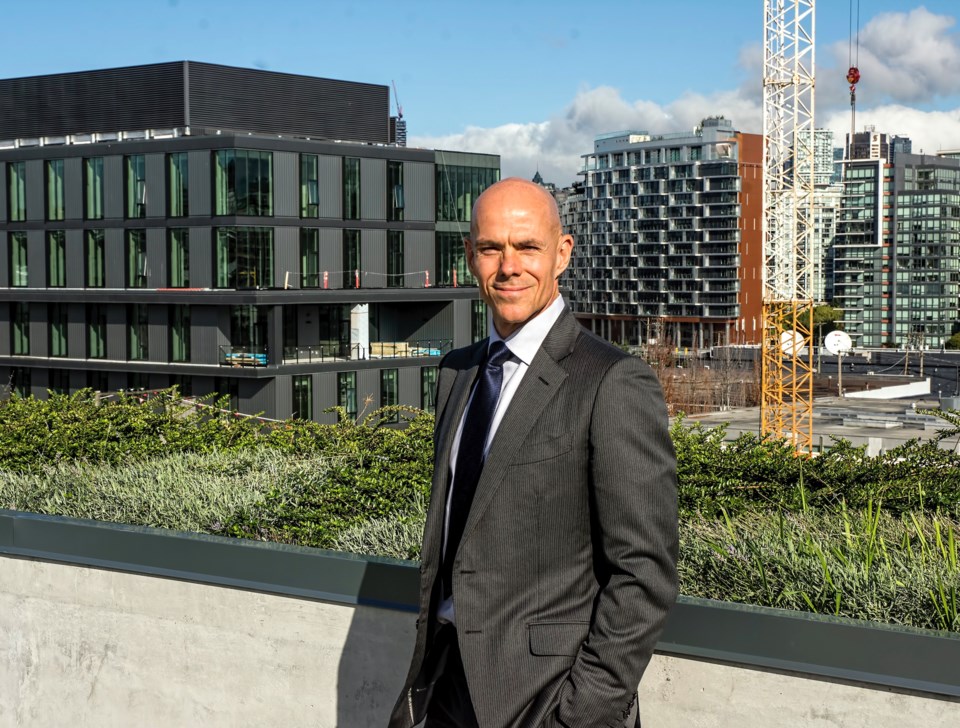Billionaire entrepreneur and venture capitalist Peter Thiel plans to resign as a director at Vancouver biotechnology firm AbCellera (Nasdaq:ABCL) on March 7.
Thiel may be best known for co-founding PayPal Holdings Inc. (Nasdaq:PYPL) and Palantir Technologies Inc. (NYSE:PLTR), and for being the first outside investor in Facebook, now known as Meta Platforms Inc. (Nasdaq:META).
“AbCellera continues to expand the frontier of biotech, a nefariously difficult and vital field,” Thiel said in a news release. “I am proud to have helped them with their mission.”
Thiel joined AbCellera’s board of directors in November 2020 and served as the chairman of the company’s nominating and corporate governance committee.
When Thiel leaves the board, Andrew Lo, who is already on the board, will be appointed to the nominating and corporate governance committee.
AbCellera's news release said that Thiel did not advise the company that he had any disagreement with it, or that he had any misgivings about any matter relating to its operations, policies or practices.
No one is slated to immediately replace Thiel on the board, which will drop to five members from the current six members.
Other board members, in addition to Lo, include the company's CEO Carl Hansen, Veronique Lecault, Michael Hayden and John Montalbano.
AbCellera was a stock-market darling during the pandemic but has struggled in the past year, laying off 10 per cent of its workforce in November.
The company went public on Dec. 11, 2020, at US$20 per share, only to see that price triple in value within minutes of the start of trading. Hours later, AbCellera’s shares were trading for more than US$70 per share. They have since slumped more than 90 per cent, and closed trading today at US$4.95 each.
Investors in late 2020 were likely giddy about AbCellera because the COVID-19 pandemic was in full swing, and AbCellera had partnered with American pharmaceutical giant Eli Lilly and Co. (NYSE: LLY) to develop what was then a COVID-19 treatment approved in the U.S. and Canada called Bamlanivimab.
AbCellera would then co-develop a second COVID-19 treatment, dubbed Bebtelovimab, which would be approved to better treat newer COVID-19 variants.
Approximately 2.5 million people received the treatments, Hansen told BIV last year, and the drugs saved countless lives.

Image: AbCellera CEO Carl Hansen stands on a roof outside the company's Mount Pleasant campus | Chung Chow, BIV
Recent investor skittishness about AbCellera could be because people have moved on from investing in companies that make COVID-19 treatments.
The COVID-19 drugs helped AbCellera’s revenue soar by 5,420 per cent to $631,848,984 when converted into Canadian dollars, up from $11,442,327 in 2018. That was good for the No. 4 spot on BIV’s 2023 list of fastest-growing companies.
AbCellera’s revenue tends to come through either upfront research payments or royalty payments.
The COVID-19 drugs were developed in what Hansen called “world-record speed” because regulatory authorities wanted to massively accelerate the timeline between discovering and approving the drugs due to sudden vital need.
The result was that AbCellera suddenly not only received upfront research revenue but also the more lucrative royalty revenue.
“The payments that we got for doing the work – the research payments, the cash payments up front – they are tiny compared to the value of the royalties,” he said.
AbCellera is capable of producing new treatments to treat new COVID-19 variants but regulatory approvals are no longer happening with lightening speed.
The result is that AbCellera is not focused on developing new COVID-19-treatment drugs because by the time regulators approve new drugs, the SARS-CoV-2 virus, which causes COVID-19, is likely to have morphed into new strains, making newly approved AbCellera drugs less effective.
AbCellera has worked on more than 70 different drug-development partnerships, most of which relate to cancer, autoimmunity and metabolic disorders. The path to having approved drugs for those ailments, however, can easily take up to 10 years.
AbCellera launched construction on its Mount Pleasant campus in 2021.



